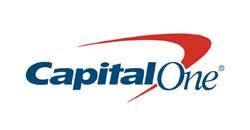
Piggy banks are fun for small change, but if you want to teach your kids important lessons about managing money and the power of compound interest, get them their own savings account. While your local bank branch probably offers more than one savings account product, you might consider looking online for one that’s designed with children in mind.
To aid in your search, we have chosen six savings accounts tailored for kids from a selection of nearly 100 kids’ savings options offered at banks and credit unions around the country. We based our selections on how well they met these five criteria:

The Kids Savings Account parental controls allows parents to sign into the account under their own usernames and passwords to help their children manage their funds. Parents always control transfers in and out of the account, offering good balance between independence for the young holder and parental oversight. Kids get to view their balance and watch their money grow.
Capital One lets you create an automatic savings plan linked with other accounts, so you can automatically transfer your child’s allowance into their Kids Savings Account. When it comes to geographical reach, Capital One has approximately 500 branch locations, as well as a great mobile banking app, which allows you to deposit checks and check balances.

If you were to open the account today with an initial deposit of $25 upon the birth of a child (and assume the current APY held for 18 years), and then deposit $25 a month for 18 years, your $5,400 investment would accrue $24.48 in interest. Add the bonus and you’ll end up with $6,449.48. The bank doesn’t put any stipulations on how the money can be spent, so you can use the balance for college or any other financial needs.

The Learning Center features Sesame Street characters that will help them learn basic money concepts. The site has fun activities you and your child can do together.
Features include the ability to set up automatic savings deposits that help them see the benefits of having a savings routine. Kids can work towards goals and learn about the three components of money: saving, sharing and spending. As your child gets older, you may choose to transfer their accumulated balance to a savings account at a bank that offers a higher interest rate.

What makes this a great option for a teen is that Alliant also offers an interest-paying teen checking account for kids ages 13-17. The checking account earns an APY of 0.25%. The two accounts can be linked and both will earn your teen interest. Alliant also refunds up to $20 per month in ATM fees if the teen uses out-of-network machines.
To open an account at Alliant Credit Union, you must be a member. Membership is open to employees or former employees of partner businesses or organizations. Or you can join by making a $10 donation to the Foster Care to Success Foundation.

Spectrum Credit Union currently has branches in six states, but deposits can be made nationwide through the Credit Union CO-OP Shared Network. Membership is open to anyone by joining the Contra Costa County Historical Society ($15 membership fee) or the Navy League of the United States ($25 annual membership fee).
It’s never too early to start teaching your kids about money, and a savings account is a great tool to help accomplish this aim. According to the 9th Annual Parents, Kids & Money Survey by T. Rowe Price, 55% of parents said their child has a savings account, but just 23% of kids said that they talk to their parents frequently about money. Parents who discuss financial topics with their kids at least once a week are more likely to have kids who say they are smart about money than than those who do not have a discussion with their children.
Savings accounts show kids the value of saving at an early age. They get to watch their money grow as compound interest work its magic, and they can set short- and long-term goals for the money they save. The reward of achieving the goals will teach life lessons on patience and planning. Once you open an account for your kids, share money management tips with them, things like “paying yourself first” by saving a portion of gifts and allowances they receive instead of spending it all.
When you teach your child good money habits early on, you help set them up for success later in life. Putting your child on the path for financial responsibility and independence by choosing the best savings account for kids could be the greatest gift you can give them.
Source: https://www.magnifymoney.com/blog/banking/best-savings-account-for-kids/